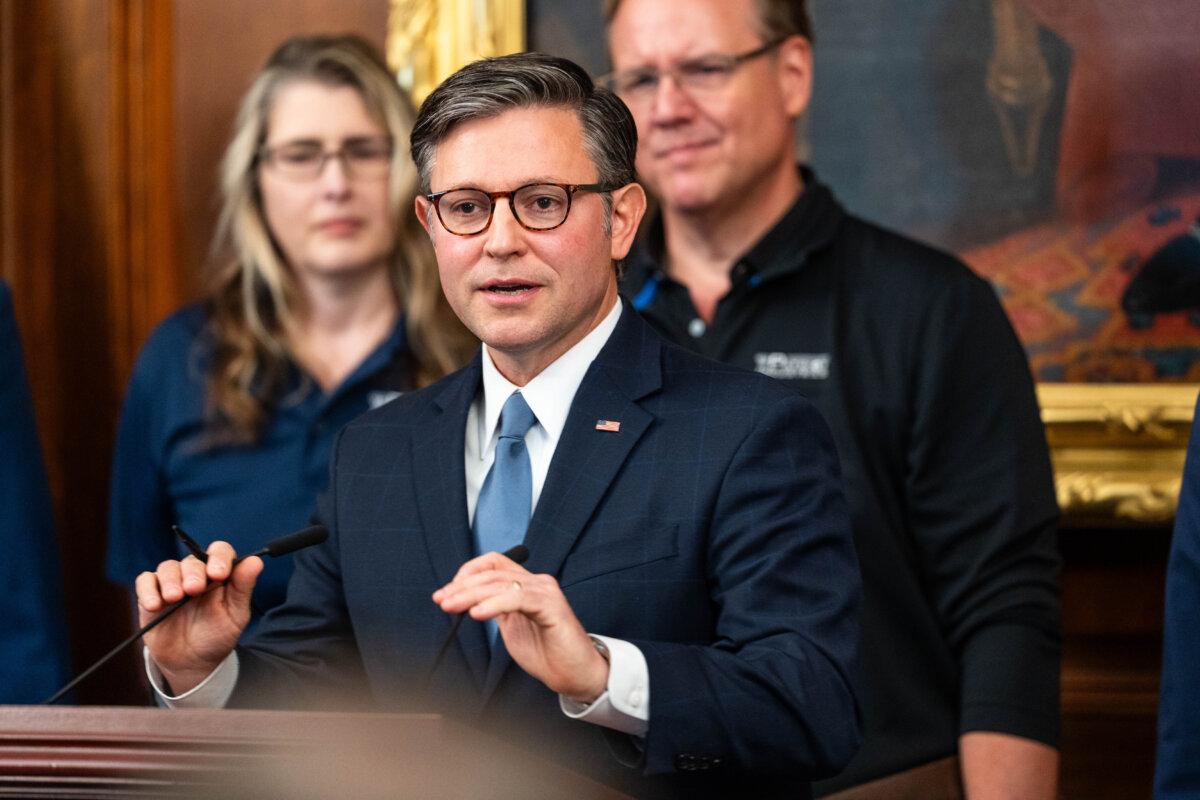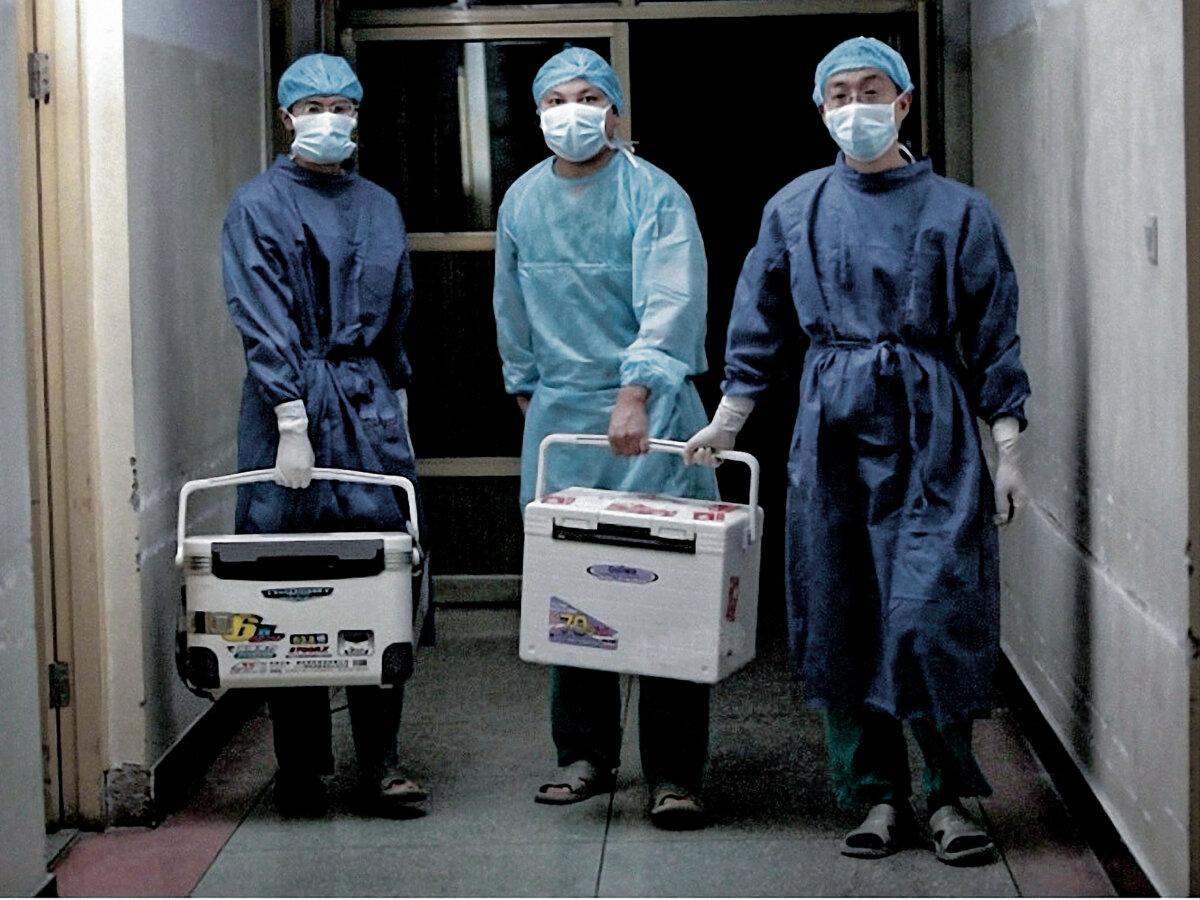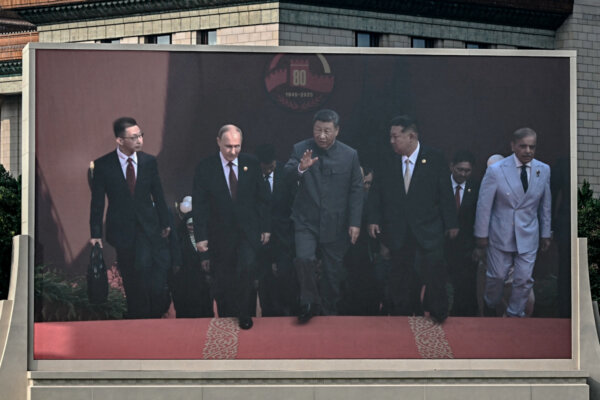![]() As China and Russia’s leaders walked shoulder to shoulder on Sept. 3, a hot mic captured them discussing increasing longevity through organ transplants, possibly living to be 150 years old.
As China and Russia’s leaders walked shoulder to shoulder on Sept. 3, a hot mic captured them discussing increasing longevity through organ transplants, possibly living to be 150 years old.
The conversation, livestreamed through Chinese state media to billions online and on television, made international headlines as China watchers scrutinized the implications, with many pointing to longstanding concerns about forced organ harvesting.
The moment came as Russian President Vladimir Putin, Chinese leader Xi Jinping, and North Korean leader Kim Jong Un ascended the Tiananmen rostrum for a massive World War II military parade.
“Earlier, people rarely lived to 70, but these days at 70 you are still a child,” Xi said through a translator in Russian.
“As biotechnology advances, human organs can be continuously transplanted, allowing us to become younger and younger, perhaps even achieve immortality,” Putin replied through his interpreter in Mandarin, gesturing with his fingers as he spoke.
The feed then cuts to a wide shot of Tiananmen Square.
“Predictions are that in this century, there’s a chance of living to 150,” Xi said off camera just before the audio faded.
Both Xi and Putin are 72 years old.
“I will tell you that we’ve heard some horrific stories of these organ transplants and all of this in China, that they take it from unwilling donors, OK, to put it mildly,” House Speaker Mike Johnson (R-La.) told NTD, The Epoch Times’ sister media outlet, in a press briefing.


“The fact that they were caught in a hot mic [is] very telling,” he said.
“It tells you where their worldview is, in contrast to ours.”
The reference to a 150-year lifespan had earlier surfaced in 2019 in a one-minute clip boasting a top-notch health system to extend the lifespan of the Chinese leadership.
The video, allegedly released by China’s largest comprehensive military hospital, the Chinese People’s Liberation Army General Hospital, said that Chinese leaders, on average, live to 88 years old, far surpassing their counterparts in the West. One key feature of this health system is restoring organ functions, according to the video.
In the condolence, a Chinese official wrote that 87-year-old Gao Zhanxiang, whom he described as having a “sharp mind and a booming voice,” had “replaced many organs in his body” as he “tenaciously fought with illness,” such that Gao himself said that “many components are not his own anymore.”
The source of their organs remains a question.


While China, under mounting international pressure, set up an organ donation system in 2015, experts who studied the Chinese organ donation data said that they are “too neat to be true.”
Johnson, at the briefing, said Xi and Putin’s conversation on this topic adds new urgency for Congress to act.
“If the leaders are talking about it, it should alarm us,” he said. “It’s a persecuted religious minority that they’re using to harvest organs from.
“The United States—we’re going to stand for morality and ethics, and we’re going to stand against that. There’s legislation, as you know, that would address it, and we might need to put that at the top of the priority list, if that’s what’s happening.”











